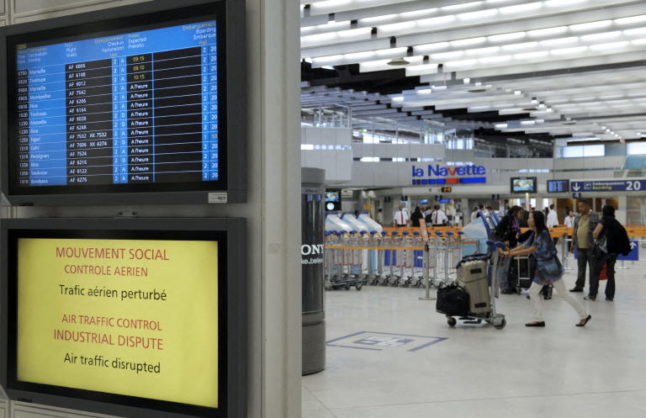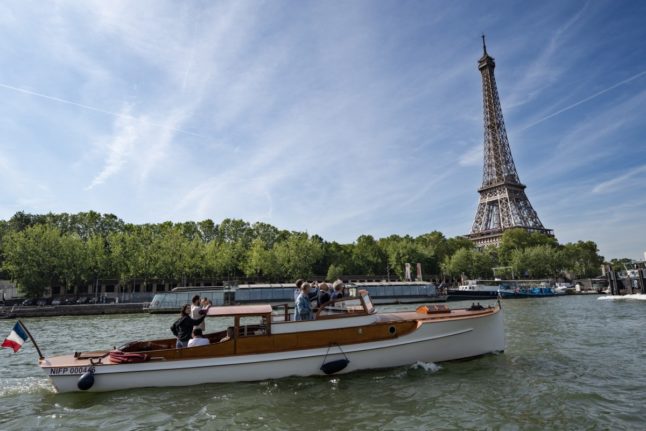A new law, which has been approved in the Assemblée national, would require individual employees at French air traffic control to give their bosses a minimum of 48 hours’ notice if they intend to join a strike.
This is the same rule that is already in place for SNCF staff on the national railways and Paris public transport operator RATP.
The notice period allows bosses time to create bespoke strike timetables based on how many employees will be at work.
At present individual air traffic controllers are not required to give 48 hours notice, although unions must file strike notices in advance.
The French Civil Aviation Authority DGAC then orders airlines to cancel a certain percentage of flights on the strike days, based on the probable turnout rate – for example Charles de Gaulle airport might be ordered to run 30 percent fewer flights than usual. It is up to airlines which flights to cancel, and they usually try to prioritise long-haul flights.
The 48-hour notice period would allow the DGAC to fine-tune their strike plans, which will almost certainly result in fewer flights cancelled since the current cancellation rates err on the side of caution.
The “protective and balanced” text of the law will put an end to “an asymmetrical system” at the root of “public service disorganisation”, argued Transport Minister Clément Beaune.
The bill was brought before MPs by Damien Adam, member of President Emmanuel Macron’s centrist party, Renaissance. It was adopted with 85 votes in favour and 30 opposed.
After it passed Adam tweeted: “That’s the end of last minute flight cancellations”.
Opposition mainly consisted of MPs on the left who saw the bill as a “threat against the right to strike”, according to Green Party MP Lisa Belluco.
The new law does not limit the right of air-traffic controllers to strike, and is not the same as a minimum service requirement, which is already in place for air traffic controllers as well as certain other key industries in France such as the nuclear sector and emergency healthcare.
MP Adam said the reform would ensure an “adapted minimum service”.
The level of disruption caused by a strike depends on how many unions join in. The biggest union representing air traffic controllers, SNCTA has already declared an “Olympic truce” and pledged not to strike until after the Paris Games are over. It is in favour of the new legislation.
Smaller unions, however, are furious and called a strike on Monday, November 20th in protest. They argue that the new law added to the existing minimum service guarantee is “a double constraint” on their right to strike and therefore their ability to effectively negotiate with authorities.
French air traffic controllers are the undisputed European champion strikers, according to a Senate study covering the period from 2005 to 2016, which found that France recorded 249 strike days, compared with 34 in Italy, 44 in Greece and fewer than ten in the other EU Member States.
Because of France’s geographical position, strikes by French controllers also affect a large proportion of European flights, as they pass through French airspace. In total, 3 million flights per year are covered by French air traffic control.
Their industrial actions have long infuriated budget airline Ryanair, which is petitioning the EU to impose strike controls on France.
“Hundreds of thousands of airline passengers have been delayed because of strikes by French ATC”, it complained last January.
READ ALSO Your rights for delayed or cancelled flights in France



 Please whitelist us to continue reading.
Please whitelist us to continue reading.
Member comments